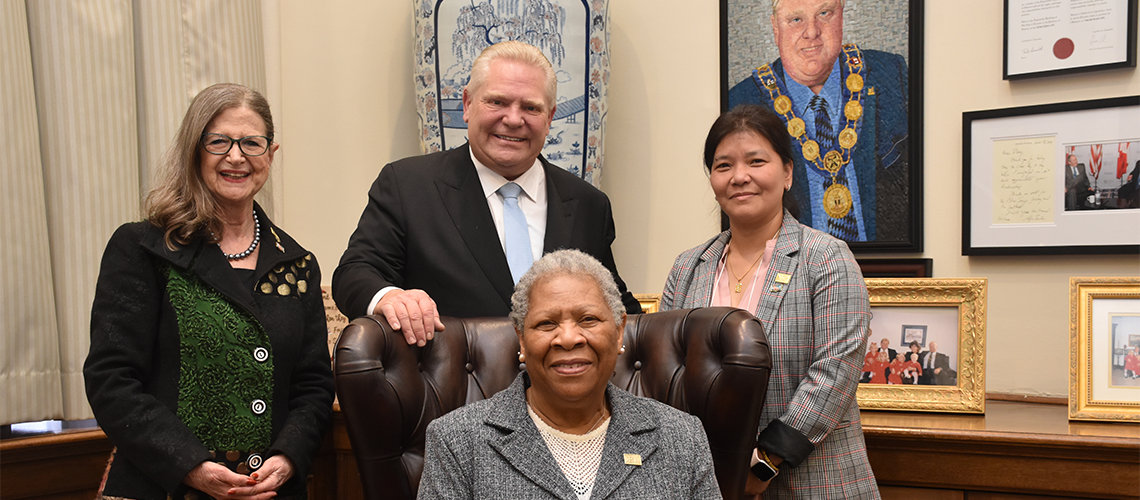
For Lori Zozzolotto, racism has been an obstacle throughout her nursing career. While in school to earn her RPN designation in 2007, she had the opportunity to apply for a clinical placement in an emergency department. Competition for the position was tough, and when she went to her instructor for advice, she was discouraged. “(My instructor) stepped back, looked me up and down, and said don’t even bother, you’re not going to get it,” Zozzolotto recalls. Determined, she worked hard and was selected for the role, and eventually went on to become the class valedictorian. She graduated as an RPN in 2008 before becoming an RN four years later. She also earned her current designation as a nurse specialized in wound, ostomy and continence in 2018.
Zozzolotto’s story (which she expands on in this issue’s instalment of In the End) was part of a bigger theme – equity, diversity and inclusivity (EDI) – at RNAO’s 24th annual Queen’s Park Day (QPD) on Feb. 29. A panel discussion at the event, which featured Zozzolotto, chair of RNAO’s Black Nurses Leading Change (BNLC) Interest Group, alongside John Edwards, executive member of the Rainbow Nursing Interest Group (RNIG), and Victoria Guido, chair of the Indigenous Nurses and Allies Interest Group (INAIG), was a highlight of the event, and an opportunity for members to learn more about EDI and how nurses and nursing students can feel empowered to speak out and enact change.
A total of 150 members of RNAO’s assembly of leaders sat down with MPPs at this year’s event to discuss EDI and other issues of importance in their communities. Systemic anti-Black racism and other forms of discrimination continue to exist in the nursing profession and broader health system, and this year’s event focused on how nurses and MPPs can provide solutions to combat it.
RNJ ACCESS
You are only one quick step away from full access to all RNJ content.
Already an RNAO member? Log in
